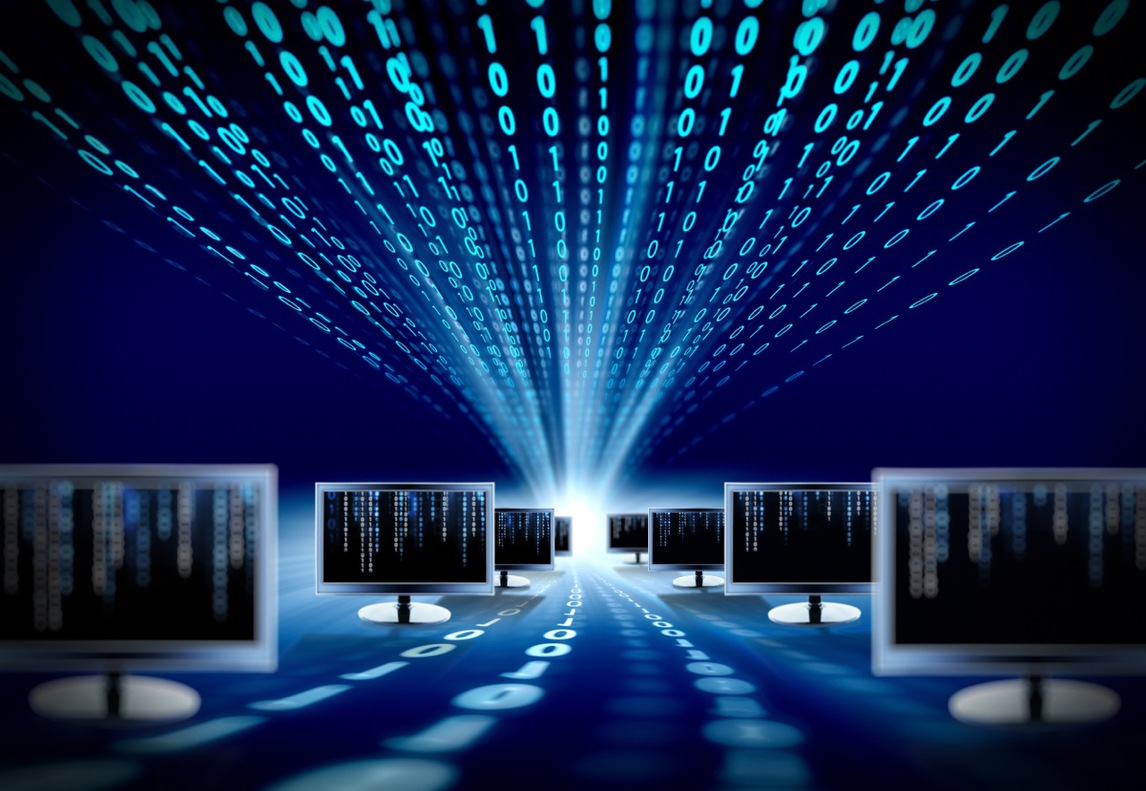|
 Novita'
Novita'
  Results of the Second Final Test on June 18th, 2023:
Results of the Second Final Test on June 18th, 2023:
Students that are evaluated with a final score higher than 18/30 are invited to communicate their acceptance via mail, to the Course responsible mail: basili@info.uniroma2.it.
  Results of the Second MID Term and the First Final Test on June 21st, 2023:
Results of the Second MID Term and the First Final Test on June 21st, 2023:
Students that are evaluated with a final score higher than 18/30 are invited to communicate their acceptance via mail, to the Course responsible mail: basili@info.uniroma2.it.
Students that need to carry out a project to collect their 9 CFU should contact the Course responsible for selecting a suitable topic.
Before accepting the evaluation, every student can access to the test outcomes, in the Course Responsible's Office, according to the following agenda:
- FRIDAY July 7th, 2023, h. 15:00-16:00
- MONDAY July 10th, 2023, h. 16:00-17:00
  FULL Summer Exams Agenda: The Summer Session will include the following exams at the following dates:
FULL Summer Exams Agenda: The Summer Session will include the following exams at the following dates:
- The Second Mid Term and the First Final Exam Test will be held on Wednesday June 21st, at h. 10:00-13:00 in Room C6, (Engineering Area)
- The Second Final Exam Test will be held on July 18th, at h. 10:00-13:00 in Room 10 (Engineering Area).
Students need to register to the different Tests through the Delphi platform. Please, for the June 21st test, specify if you register for the Mid Term 2 or for the First Final Exam.
  Results of the First MID Term Test on April 26th, 2023: All students that are admitted with a temporary evaluation higher than 18/30 are invited to register to the Mid Term 2 Test through the Delphi platform.
Results of the First MID Term Test on April 26th, 2023: All students that are admitted with a temporary evaluation higher than 18/30 are invited to register to the Mid Term 2 Test through the Delphi platform.
-
!!WARNING: First MID Term DATE CHANGE!!: The First Mid Term Test will be held on Wednesday April 26th, during the morning lesson slot (h. 9:00-11:30 in Room B14, Engineering Area) and NOT on the 27th, as previously announced. The Test will still cover topics from ALL the lessons from 1 to 8.
Students need to register to the Test through the Delphi platform.
 
NEWS: All students are kindly requested to install Anaconda, a distribution of the Python and R programming languages for scientific computing, that makes available the different main packages useful for the Lab:
- Jupyter Notebook
- Python, as "Anaconda is a completely free Python distribution. It includes more than 400 of the most popular Python packages for science, math, engineering, and data analysis
- SciKit Learn
Please locate the Anaconda installation executable you need to download for your PC at the following address: https://www.anaconda.com/products/distribution. Then Run the installation and follow the instructions.
The slides of the two lessons are uploaded as follows:
 ANNUNCIO: Il Corso avra' inizio a partire dal 6 Marzo 2023, secondo il seguente orario:
ANNUNCIO: Il Corso avra' inizio a partire dal 6 Marzo 2023, secondo il seguente orario:
- LUNEDI', h. 14:00-16:00
(
 Aula 13 Edifici Aule Macroarea di Scienze) Aula 13 Edifici Aule Macroarea di Scienze)
- MERCOLEDI', h. 9:30-11:30
(
 Aula B14 Edifici Aule Nuove della Macroarea di Ingegneria) Aula B14 Edifici Aule Nuove della Macroarea di Ingegneria)
- GIOVEDI'', h. 11:30-13:30
(
 Aula 13 Edifici Aule Macroarea di Scienze) Aula 13 Edifici Aule Macroarea di Scienze)
 
The teams of the course under MS Teams is: "BASILI-8038971-WM&R-2022_23". Please check your membership on MS Teams. The course will start on March 7 according to the following:
Course TIMETABLE:
- LUNEDI', h. 14:00-16:00
(
 Aula 13 Classrooms Science Macroarea) Aula 13 Classrooms Science Macroarea)
- MERCOLEDI', h. 9:30-11:30
(
 Aula B14 Classrooms Engineering Macroarea) Aula B14 Classrooms Engineering Macroarea)
- GIOVEDI'', h. 11:30-13:30
(
 Aula 13 Classrooms Science Macroarea) Aula 13 Classrooms Science Macroarea)
Gli studenti che intendono seguire il Corso sono pregati di registrarsi ad esso, accedendo al sito Delphi.
Le diapositive delle lezioni saranno pubblicate durante il ciclo delle lezioni su queste pagine.
Il Corso insiste sulle ricerche ed i progetti innovativi del Semantics Analytics Group (SAG), che si occupa di Deep Learning e Natural Language Processing nella progettazione ed ingegnerizzazione di Sistemi Software Avanzati di Intelligenza Artificiale. Tali sistemi sono applicati a processi predittivi nella interpretazione e ricerca di documenti, nella sicurezza in rete, nella analisi dei Social Network e nei processi di Digital Transformation nell'Industria e nella Medicina.
Sono attive alcune sperimentazioni e progetti presso il SAG Laboratory for Semantics Analytics, da cui sono emanate annualmente alcune Borse di Studio e Premi di Laurea.
Sara' possibile discutere in dettaglio le diverse Tesi con il coordinatore di SAG, prof. Roberto BASILI, o con il responsabile tecnico del Laboratorio, prof. Danilo CROCE.
L'orario di ricevimento, diverso da quello dei Corsi, e' da concordare con i docenti via e-mail.
|
|
Programma
 Segue il programma preliminare del Corso che sara' messo a punto ed finalizzato al termine delle lezioni del Corso.
Segue il programma preliminare del Corso che sara' messo a punto ed finalizzato al termine delle lezioni del Corso.
Section I: Machine Learning and Deep Learning.
Deep Learning and Artificial Intelligence. Supervised methods.
Probabilistic and Generative Methods. Hidden Markov Models.
Statistical Learning Theory: PAC learnability. Kernel-based Learning. Polynomial and Radial Basis Function Kernels. String and Tree kernels. Semantic kernels.
Neural Modeling: Perceptron, Multilayer Percetrons, Deep Neural Networks. Language Models and Recurrent Networks. Attention-based Neural Networks. Transformers: BERT, GPT models. 0-Shot Learning. Introduction to the main software platforms for the development of ML software: Weka, SciKit, PyTorch, KeLP.
Section II: Deep Networks for Natural Language Processing and Social Media Analytics.
Neural Language Processing. Named Entity Recognition. Statistical and Neural parsing.Shallow Semantic Parsing: Semantic role labelling.
Neural models for Textual Inference: from few shot learning to prompting. Information Extraction for Business Modeling. Question Answering Systems. Wikipedia-based knowledge Acquisition. Social Web Analysis. Opinion Mining and Sentiment Analysis.
ML Application for the Digital Transformation: Sentiment Analysis, Brand reputation and real Time Marketing. Social Media Analytics: fake news counteraction. Ethical dimensions of Neural Decision Making. .
|
|
Testi di Riferimento
- ML/DL - Introduction to Deep Neural Learning, Deep Learning, Ian Goodfellow, Yoshua Bengio, Aaron Courville, MIT Press, 2016.
-
ML - Pattern Recognition and Machine learning, C. Bishop. Springer. 2006.
-
ML ed IR - Introduction to Information Retrieval , Christopher D. Manning, Prabhakar Raghavan and Hinrich Schutze, Cambridge University Press. 2008. Find the book Home page HERE.
-
ML ed IR - Automatic Text Categorization: from Information Retrieval to Support Vector Learning, Roberto Basili, Alessandro Moschitti, ARACNE Editore, 2005.
-
Web IR - Bing Liu, Web Data Mining: Exploring Hyperlinks, Contents, and Usage Data. 2nd Edition, July 2011, Springer.
- Dispense fornite dal docente
|
